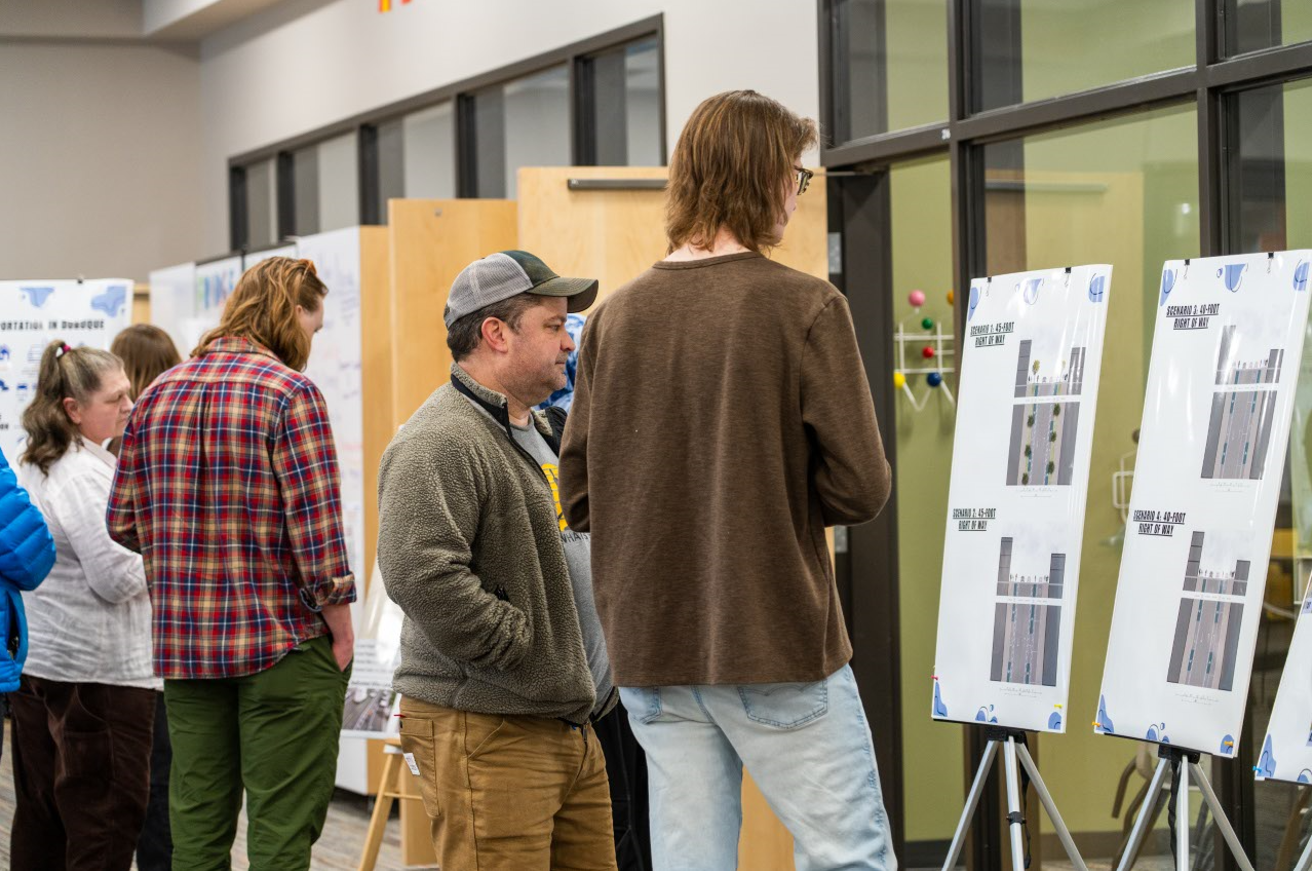Dubuque - Alternative Transportation Action Plan
As part of their capstone project, second-year Urban & Regional Planning graduate students created a plan to spur action toward improving bicycle and pedestrian infrastructure in Dubuque.
As part of its ambitious sustainability plans, Dubuque seeks to reduce vehicle dependency and vehicle miles traveled (VMT) and create/promote accessible and equitable transportation alternatives.
The Downtown Dubuque Alternative Transportation Action Plan is a short-term action plan that will serve as a focused strategy for present and future alternative transportation initiatives within Dubuque’s downtown and adjoining neighborhoods. The plan merges the prior goals and objectives outlined in existing Dubuque plans to create practical, actionable steps. The City’s previous plans identify alternative transportation infrastructure as an essential component to reducing carbon emissions, combating climate change, promoting equity and active travel, and enabling the movement of people within and around the downtown area.
This plan assesses the current state of Dubuque’s alternative transportation system, which is characterized by ambitious goals and visions for multimodal transportation that have been slow to manifest. Among the city’s existing goals are reducing greenhouse gas emissions by 50%, reducing vehicle miles traveled (VMT) by 10%, and implementing complete street principles on 25% of Dubuque streets by 2030.
Despite adopting numerous alternative transportation-related plans in the past, progress on implementation many of the transportation goals outlined in those plans has been slow. The students analyzed the city’s downtown alternative transportation system across three infrastructure categories: bicycle, pedestrian, and parking. The team individually and holistically analyzed these categories to create a plan for a cohesive, multimodal transportation system in the city of Dubuque’s downtown. By analyzing existing conditions in the city and researching similar cities and case studies, the team generated actions aimed at achieving the city’s alternative transportation goals.
